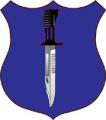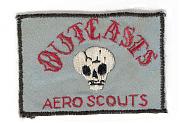You do, and I do appreciate that you do (and I am sure everyone does as well). I was ‘reading into’ what you said, and was not sure whether I was right or not in doing so. So thank you for elaborating. Your way of thinking about what constitutes a ‘citizen army’ is helpful (my use of ‘looser’ was misconceived - my apologies), even though it may be different from the 'normal' def’n.Ken posted
Generally I say what I mean and mean what I say
I have noted with interest when you have made this point before on other threads, and it is an important point that I have absorbed.Ken posted:
The far more normal (in the greater historical sense) relatively small volunteer Army is not in that model and never has been.
In part this brings us back to Matt's question about the Army (and other services) seeing itself as a citizen army. Given the history you note, an interesting question is how being a citizen army is interpreted by the organizations. I strongly suspect that they would interpret it in much the same way you have - which is why I think your approach is helpful.
Again, thank you for your elaboration. As I mentioned, Ricks in Making Marines raises the possibility of a widening gap, and I have run across others who raise the issue by implication when they talk about the propensity of military service running in families and/or that certain regions of the US tend to be more represented in the services than others. As a consequence, while I do not have any specific concerns, these have raised in my mind a vague sense of ‘Hmmm, I wonder’.Ken posted:
I think that depends on what the concern is.
A very interesting observation, one that is food for ongoing thought on my part given my interest in the role of self identity.Ken posted:
Thus I suspect that the variance in values differences are more concerns of strength of attachment than to strength of value per se….
Very true.Ken posted:
that defining trait is going to be very difficult to change...
















Bookmarks